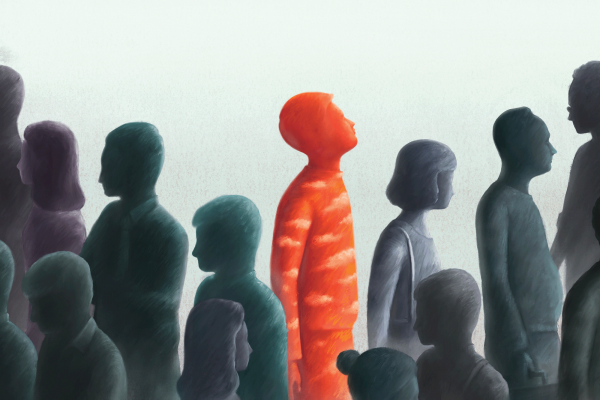DOES IT EVER seem that you’re cultivating your worst self instead of your best? We are still a far cry from what Catholic Worker co-founder Peter Maurin called “a society in which it is easier for people to be good.” Every day we face hard moral choices. Social media and the broader culture foster entitlement, grievances, tit-for-tats, snap judgments, and hurtful words. The global economy entangles our purchases to injustice somewhere. We are constantly in fragile, guilty, fearful, and wounded states that lead to lashing out and reacting badly. So, how do we live principled and faithful lives within sinful systems? Our Christian tradition provides tools to maintain a sense of integrity.
When a person finds it impossible to make decisions according to their conscience, they sustain a “moral injury.” Such injuries result when we are unable to align how we live with who we believe ourselves to be. For most of us, these injuries are small (compared to those in violent situations), but they add up. We may look at injustice in the world and spiral into thoughts such as, “I’m not doing enough,” “I’m part of the problem,” “I’ve got no right to complain,” or even “Why can’t I remember to bring a frickin’ container for leftovers when I go out to eat?” Our inner critic works overtime — and has plenty of material. These self-criticisms can define how you see yourself. Getting a handle on them with mercy — recognizing and assessing them honestly — is key to spiritual resilience.
Read the Full Article

